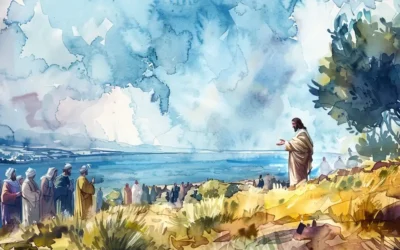If the law of Moses is still considered binding today as before the time of Christ, then it would suggest that His mission was not fulfilled and that Jesus failed in His purpose. However, if the Lord accomplished what He came to do, then the law would have been fulfilled and not remain as a binding legal code today.
Jesus explicitly stated that not even the smallest part of the law, represented by the “jot or tittle” in Hebrew script, would pass away until everything was fulfilled. Therefore, nothing of the law was to fail until its purpose was achieved entirely.
Some may argue that the law would last until “heaven and earth” pass away. However, a careful reading shows that Jesus meant it would be “easier” for the universe to pass away than for the law of God not to fulfill its mission (Luke 16:17).
Luke 16:17: But it is easier for heaven and earth to pass away than for one stroke of a letter of the Law to fail.
Therefore, anyone who argues that Moses’ law is still legally binding today must accept all its requirements, including bloody sacrifices, pilgrimages to Jerusalem, and purification rituals.
Furthermore, Paul clearly states in his letter to the Ephesians that the “law of commandments contained in ordinances” was “abolished” by Jesus’ death on the cross (Eph. 2:14-15). The Greek term for “abolished,” katargeo, suggests reducing something to a state of inactivity.
Ephesians 2:14-15 – For He Himself is our peace, who made both groups into one and broke down the barrier of the dividing wall, by abolishing in His flesh the hostility, which is the Law composed of commandments expressed in ordinances, so that in Himself He might make the two one new person, in this way establishing peace;
NASB
Paul uses this term in Romans 7:2 and 6 to illustrate that just as a wife is released from her husband’s law when he dies, through Christ’s death, people were removed from the obligations of the Mosaic law. This includes the ten commandments, as indicated by the reference to the tenth commandment in Romans 7:7 (Ex. 20:17).
The harmony between Matthew 5:17-18 and Ephesians 2:15 is that the purpose of the Mosaic law was never meant to be in vain, but as a legal code, it was abolished by Christ’s sacrificial death (Col. 2:14).
Therefore, when considering all these facts, it is clear that Matthew 5:17 does not support the idea that observance of the Sabbath is a required obligation for this age.




